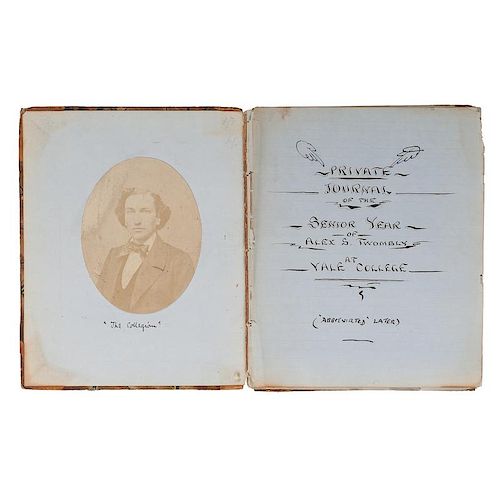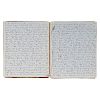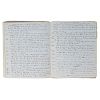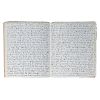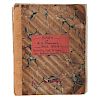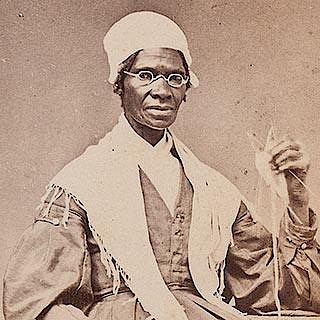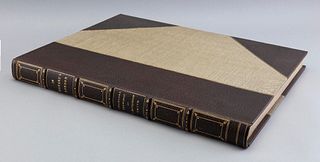Alexander S. Twombly Diary Documenting his Senior Trip to Cuba and a Slave Auction in Charleston, Ca 1853-1854
About Seller
6270 Este Ave.
Cincinnati , OH 45232
United States
With offices in Cincinnati, Cleveland and Denver, Cowan’s holds over 40 auctions each year, with annual sales exceeding $16M. We reach buyers around the globe, and take pride in our reputation for integrity, customer service and great results. A full-service house, Cowan’s Auctions specializes in Am...Read more
Two ways to bid:
- Leave a max absentee bid and the platform will bid on your behalf up to your maximum bid during the live auction.
- Bid live during the auction and your bids will be submitted real-time to the auctioneer.
Bid Increments
| Price | Bid Increment |
|---|---|
| $0 | $25 |
| $500 | $50 |
| $1,000 | $100 |
| $2,000 | $250 |
| $5,000 | $500 |
| $10,000 | $1,000 |
| $20,000 | $2,500 |
| $50,000 | $5,000 |
| $100,000 | $10,000 |
About Auction
Jun 9, 2017 - Jun 10, 2017
Cowan's Auctions dawnie@cowans.com
- Lot Description
Approximately 153pp journal documenting Yale graduate, Alexander Stevenson Twombly’s journey to Cuba from the spring of 1853 to the summer of 1854. Beyond Cuba, Twombly visited several places in the United States including a slave market in Charleston, SC and a ball at the White House, hosted by President Franklin Pierce.
Alexander Stevenson Twombly came from a privileged household. Proud of his heritage, Twombly recorded his family’s “pedigree” in the first pages of his journal. The Twomblys came from England to Dover, NH in 1656 after a land grant. They continued to live in prominence and prosperity in the Americas for generations. Twombly's father, Alexander Hamilton Twombly, engaged in mercantile shipping pursuits, acted as director of the Chicago Northwestern Railroad, and served as a Representative and Senator for Massachusetts (Decennial Record of the Class of 1896, Yale College, p. 620). His brother, Hamilton McKown Twombly, went to Harvard and entered the family business. Furthering the family’s prominent position in society, Hamilton married Florence Adele Vanderbilt Twombly, daughter of William Henry Vanderbilt, the heir to Cornelius Vanderbilt’s enormous fortune. Alexander Twombly neglected to include his brother Hamilton along with his four other siblings in his account of the family lineage in his journal.
Twombly chose to pursue a humbler profession in ministry. He enrolled in Yale his sophomore year of college. His well-connected family allowed him to travel extensively. During his senior year at Yale in 1853, he traveled to Cuba with his friend Sally, and kept a journal. Before exiting the United States, he spent some time in Charleston, SC. During his stay, he took a tour of the city and experienced the ugliness of the slave trade. Amused and appalled, he wrote:
[Our guide] said the negroes outnumbered the whites but were in very good order—knew their place--I hardly knew how to treat [the negroes], whether to be pleasant lest they should take advantages, or to cuff them and make them mind quickly—[Our guide] propounded a strange theory of mullato girls—said this Presbyterian “The mullato girls are very pretty…and they answer as mistresses well—not a case of seduction of a white lady has been known for a long time but” said he “the southern blood is hot—it must(?) have way, and these mullatos are not disgraced by being made mistresses of the white men—and they are true as steel—“ I tried to make him feel the immorality of such things that be partially(?) allowed but said It was a [illegible] of greater evil and therefore a good thing (p. 41).
Later that day, he witnessed a sale. He wrote:
Went to see an auction sale of negroes 101 plantation hands-Stupid looking, clothed in coarse woolen and sold in families—they brout good prices, varying from $500 and $700 per head—there were two auctioneers one to jabber and the other to keep his eyes open and get the bids—The jabereer was a cut-throat villain Oh Such a humid man! I could have shaken his hide off—the other a nicer looking but ugly wretch I could not pity the negroes much—They seemed satisfied and did not mind it much—but the idea of selling human flesh was to me horrid—I said nothing but thought much (p. 43)
Although Twombly thought much of it, he did not discuss the unsettling experience any more. Instead, he moved on to happier thoughts and scenes of the city. Yet, the issue of slavery continued to resurface throughout his journey.
After arriving in Cuba, Half clad negroes are scattered here and there quite thickly some with only pants to cover them with their ebony shoulder very uniquely to a stranger, carrying large casks of tobacco, welcomed them in the harbor (January 21, 1854). He visited large plantations, sampled coffee, munched on plantains, and documented his curious musings on the architecture and culture of the place.
He returned to Columbia, SC in March of 1854. Once again, the issue of slavery resurfaced on a coach ride to Washington, DC. He wrote, At Wilmington this morning I met a very intelligent S. Carolinian who had been to attend court at Marion(?)—Had a talk about the secession movement—He told me that the feelings had been very strong—that a majority of 6000 only had put it down that now many would not feel badly to separate from the Union – but said he “I myself am a seccesionsit, for the south gains nothing from the present tarrif laws, but this argument is a bad one against secession—We should fall to pieces without Union” (p. 121).
After saying his goodbyes to the Southern gentleman, he and Sally wandered around Washington and dined with the President. He described, Taking Sally on my arm, we entered a large ball—long and brilliant; passed into a cozy(?) little room and thro’ that into the Reception room where the Old Pres, Franklin Pierce Esq, shook my hand and bowed to Sally (p. 126). He and Sally navigated through several rooms and a motley collection of people...one fellow with the shabbiest coat—old maiden ladies dressed with no task and much economy—Here a clerk of a dry good store and there the Prince of Nassau—In comes a rough old sea captain and nearby an elegantly attired fashioned lady (May 30, 1854, pp. 126-127) The journal ends after he returned to Yale to complete his studies.
Twombly graduated that year and pursued some theological courses in Andover, NH. Instead of completing his studies, he opted to study abroad in several European and Eastern countries. Upon his return, he married and served as a pastor at several churches in New England. He fathered five sons, four of whom studied and graduated from Yale. From 1881 until 1885, Twombly was President of the Yale Alumni Association. During that time, in 1883, the college awarded him an honorary Doctorate in Divinity. Keeping with his traveling spirit, he ventured to Hawaii and was the acting pastor of the Central Union Church at Honolulu for several months. Inspired by his time there, he authored Hawaii and its People: The Land of the Rainbow Palm (1899) and Kelea, the Surf Rider: A Romance of Pagan Hawaii (1900). He died in 1907.
Yale University currently has a collection of Twombly's papers spanning from 1843 to 1907, housed at Sterling Memorial Library.
Sources: Record and Statistics, by Yale University Class of 1854, published in 1896.
Yale University Papers, Guide to the Alexander Stevenson Twombly Papers.
Sources: Record and Statistics, by Yale University Class of 1854, published in 1896. https://archive.org/details/recordandstatis00goog
Yale University Papers, Guide to the Alexander Stevenson Twombly Papers. http://drs.library.yale.edu/HLTransformer/HLTransServlet?stylename=yul.ead2002.xhtml.xsl&pid=mssa:ms.1163&clear-stylesheet-cache=yes
Provenance: Property of N. Flayderman & Co.The journal is in poor condition with separated binding and brittle pages. Although the handwriting is dark and clear, it is sometimes difficult to decipher his handwriting. The genealogical record is loose from the original book. Alexander or another member of the family tore many out many of the first 37 pages. He is also inconsistent in dating the first portion of his journal. He does, however, number each page.Condition
- Shipping Info
-
SHIPPING. At the request of the buyer, Cowan's will authorize the shipment of purchased items. Shipments usually occur within two weeks after payment has been received. Shipment is generally made via UPS Ground service. Unless buyer gives special instructions, the shipping method shall be at the sole discretion of Cowan's Auctions, Inc.. Cowan's is in no way responsible for the acts or omissions of independent handlers, packers or shippers of purchased items or for any loss, damage or delay from the packing or shipping of any property.
-
- Buyer's Premium



 EUR
EUR CAD
CAD AUD
AUD GBP
GBP MXN
MXN HKD
HKD CNY
CNY MYR
MYR SEK
SEK SGD
SGD CHF
CHF THB
THB